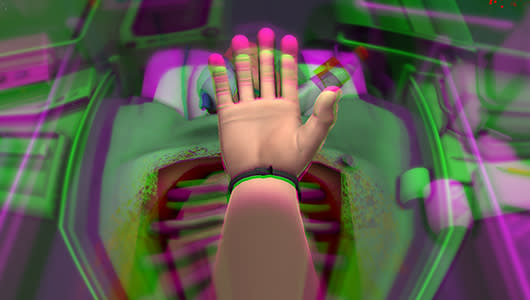Study shows intense gaming can cause changes in real-life perception
A new study published in the International Journal of Human-Computer Interaction has linked changes in visual perception and "pseudo-hallucinatory experiences" with intense video gaming. According to the study, intensive playing can cause the player's mind to perceive real-life objects through a gaming lens and can also create a situation in which the mind generates visual distortions based on gameplay.
Examples offered in the study, which was done by gathering 656 posts from 54 different forums, include a subject seeing the Mass Effect dialogue wheel in his or her mind during conversations and another mistaking in-flight airplanes for Modern Warfare 2 UAVs. Mentioned as a basis for the study are the visual "waviness" some gamers experience after long sessions with Guitar Hero, the "Tetris effect" that involves seeing how real-life items could stack after playing the famous puzzler, and "Minecraft sickness" in which gamers see square-shaped themes in everyday objects.
The full study breaks down a number of different types of gaming after-effects as reported by participants and proposes that the effects can be caused by "the interplay of physiological, perceptual, and cognitive mechanisms."


